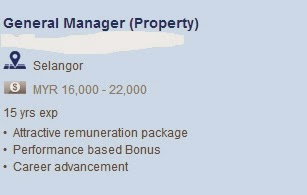Since 2008 many nations were economically deprived of their source of income. Some inhabitants chose to change their jobs or migrate to a new land.
There are 232 million migrant workers worldwide and therefore logically we shouldn't have workers or employees shortage.1. That is not the case. What we are short of, are skilled and knowledgeable workers.
There are 232 million migrant workers worldwide and therefore logically we shouldn't have workers or employees shortage.1. That is not the case. What we are short of, are skilled and knowledgeable workers.
To compound business interest on global scale such as China and South Korea, the vast movements from African continents, Middle East and some East Asia basin due to war-torn nations to Australiasia, many of these displaced people brought along their systems of believes.
Most employers are quite responsible and adaptive towards the changes, but not all are fast enough, and on larger scale, cool-headed to deal with the changes - such as 300-400 employees of two factories clashing over misunderstanding. This then create an atmosphere of distrust among the residences and the factory management.
 |
| New Surau just built on extended factory - Kedah |
3 Quick Ways to manage new migrant labours.
1. Respect.
Always treat the workers with reasonable respect on the practical side with overall security in mind. For example, would one allow Voodoo-shamans? What about setting up religious halls? Normally there will be the appropriate Government agency to provide advice to setting up community villages.
If the decision is to be setup, then the management will do well to steer away from commenting further, that such a decision- is a business loss. Consider this as an opportunity as part of Corporate Social Responsibility (CSR) and Global Citizenry.
2. Recognise migrant labour rights.
International policies may not work well at local climate. They are for protecting workers rather than employers.
3. Education and Awareness.
Factory managers and supervisors have to recognise the types of leaderships in play. Those granted within the migrant community and that of the employers. One must find a balance to setup a leadership group that reduces chances of mis-communications.
Having some form of leadership and management education and awareness campaign would create a better glue to get people moving in one direction.
---
And the best way to get things started is to first, listen to the new migrants even if a translator is needed to be hired.









